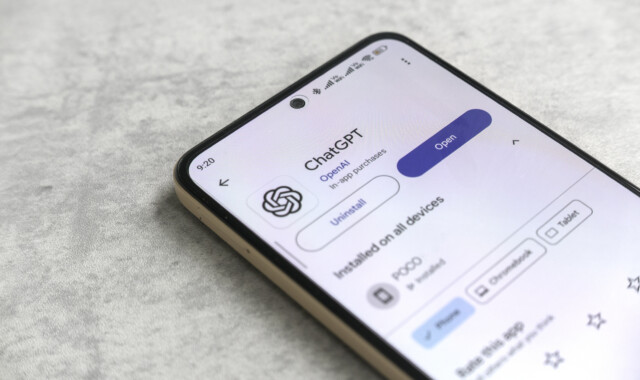Contents:
If your child has special educational needs and/or disabilities (SEND), you’ve likely heard of a SENCO at their school. But what is a SENCO, and how can they help your child succeed in secondary school? In this article, we’ll break down everything you need to know about Special Educational Needs Coordinators (SENCOs) and how they can support you and your child.
What does SENCO stand for?
SENCO stands for Special Educational Needs Coordinator, though the exact title may vary depending on where you live in the UK. In most English schools, the terms SENCO or SENDCO (Special Educational Needs and Disabilities Coordinator) are commonly used. In Wales, the role is referred to as an ALNCO (Additional Learning Needs Coordinator), while in Scotland, the equivalent role is often called an ASN Coordinator, where ASN stands for Additional Support Needs. Despite these regional differences in terminology, all mainstream secondary schools in the UK are required to have someone in this role.
What is the role of a secondary school SENCO?
A SENCO is a qualified teacher with additional training and expertise in SEND. Their primary responsibility is to ensure that children with SEND receive the tailored support they need to thrive both academically and socially.
What does SEND mean?
SEND (Special Educational Needs and Disabilities) can affect a young person’s ability to learn. Some examples of SEND include:
- Autism
- Attention Deficit (Hyperactivity) Disorder (ADD/ADHD)
- Dyslexia
- Emotional and behavioural difficulties
- Speech and language difficulties
- Physical disabilities
Students with SEND may face challenges in a range of areas, including:
- Reading, writing, numeracy, or understanding information: Students with dyslexia or speech and language difficulties may struggle with literacy or processing verbal instructions.
- Concentrating or staying focused: Those with ADD or ADHD may find it hard to concentrate on tasks or organise themselves.
- Social interaction and communication: Autistic students may struggle to understand social cues, make friends, or express themselves.
- Physical coordination or mobility: Students with physical disabilities may struggle to participate in certain activities or navigate the school environment.
- Managing emotions and behaviour: Emotional and behavioural difficulties can impact a child’s ability to regulate their emotions, follow routines, or engage positively with peers and teachers.
Secondary school SENCOs play a crucial role in:
- Assessing the specific challenges a student might be facing
- Monitoring the individual progress of each SEND pupil
- Liaising with and advising the parents and teachers of pupils with SEND
- Overseeing the implementation of special provisions with the school
- Ensuring appropriate accommodations are in place for SEND students
- Contributing to the training of fellow staff members
- Collaborating with external professionals like educational psychologists or therapists
The SENCO’s role is to ensure that every student, regardless of their learning needs, has access to an inclusive and supportive learning environment.

When should I consult a SENCO?
While every child develops at their own pace, ongoing academic, social, or emotional difficulties may indicate the need for additional support.
You might notice your child struggling with schoolwork, particularly in areas like reading or numeracy, or finding it difficult to keep up with their classmates. They may have persistent trouble concentrating or struggle to make friends and engage with their peers. If your child seems frustrated or anxious about school, or if their teachers have raised concerns, these could all be signs that extra support is necessary.
If a healthcare professional outside of school has identified a specific learning difficulty, such as dyslexia, autism, or ADHD, it’s important to involve the SENCO as early as possible to create a tailored support plan. Similarly, if your child has already been identified as having SEND but continues to struggle – especially during key school transitions such as moving into a new school year or preparing for exams – it may be a good time to review and adjust their support strategies.
Early intervention is crucial in ensuring your child receives the support they need to thrive.
How can a SENCO help my child?
A SENCO is specially trained to help identify signs of learning difficulties in children and ensure children with SEND receive the support they need at school. While SENCOs cannot formally diagnose conditions, they can refer students for further assessments with external professionals. SENCOs must always obtain the consent of parents or guardians before making any such referrals.
Once a child is identified as having SEND, the SENCO works with both parents and teachers to put a tailored plan in place.
Personal Learning Plans (PLPs)
One of the key tools they can implement is a Personal Learning Plan (PLP) or a Pupil Passport. This is a detailed plan that outlines your child’s specific needs and the support that the school will put in place for them to help them succeed. It is shared with their form tutor as well as subject specialist teachers, ensuring that everyone involved in your child’s education is aware of the accommodations or adjustments they need. For example, a PLP might include extra time for exams, specific teaching methods, or the use of assistive technology.

In addition to PLPs, SENCOs can help in other ways:
- Coordinating support: The SENCO will work closely with classroom teachers and other staff to ensure that the necessary adjustments are being made in lessons. They may arrange for additional learning aids or classroom accommodations.
- Liaising with external professionals: If needed, the SENCO can bring in external specialists, such as educational psychologists, speech therapists, or occupational therapists, to further assess and support your child.
- Monitoring progress: The SENCO should regularly review your child’s progress, ensuring that the support strategies are effective, and make necessary adjustments.
- Providing emotional and social support: Beyond academics, a SENCO is often involved in supporting your child’s social and emotional development, offering strategies for improving confidence, managing anxiety, or building friendships.
- Supporting transitions: Whether your child is moving between year groups or preparing for key stages like GCSEs, the SENCO can help manage these transitions, ensuring the right support is in place at each step.
Education, Health, and Care (EHC) plan
For some children with more complex or long-term needs, a PLP may not be enough to ensure they receive the right level of support. In these cases, the SENCO may suggest applying for an Education, Health, and Care (EHC) plan. This is a legal document that outlines a child’s educational needs as well as any health and social care support they may require.
An EHC Plan can remain in place until your child turns 25 if necessary, ensuring long-term, consistent support as they transition from secondary education into further education or training. For more information on EHC Plans, visit the UK Government’s website.

How to work with a SENCO effectively
Collaborating with a SENCO can be one of the most effective ways to ensure your child receives the help they need. Here are some tips to make this partnership work:
- Be proactive: Don’t wait until parents’ evenings to raise concerns. If something doesn’t feel right, reach out early and ask for a meeting.
- Prepare for meetings: Before meeting with the SENCO, write down any questions or worries you may have. Bringing examples of your child’s work or homework can also help illustrate your concerns.
- Communicate openly: Share as much information as possible with the SENCO, including any professional assessments, your own observations at home, and your child’s feelings about school.
- Keep in touch: Request regular updates on your child’s progress and ask if you can be involved in reviewing their PLP.
Additional resources and support for parents
Navigating the world of SEND can be challenging, but there are many resources available to help parents:
Understanding the role of a SENCO is crucial to ensure that your child gets the right support in secondary school. Whether it’s identifying learning difficulties, coordinating classroom adjustments, or liaising with external specialists, the SENCO is there to help your child succeed. If you’re concerned about your child’s progress or think they may need additional support, don’t hesitate to reach out to your school’s SENCO.







Comments